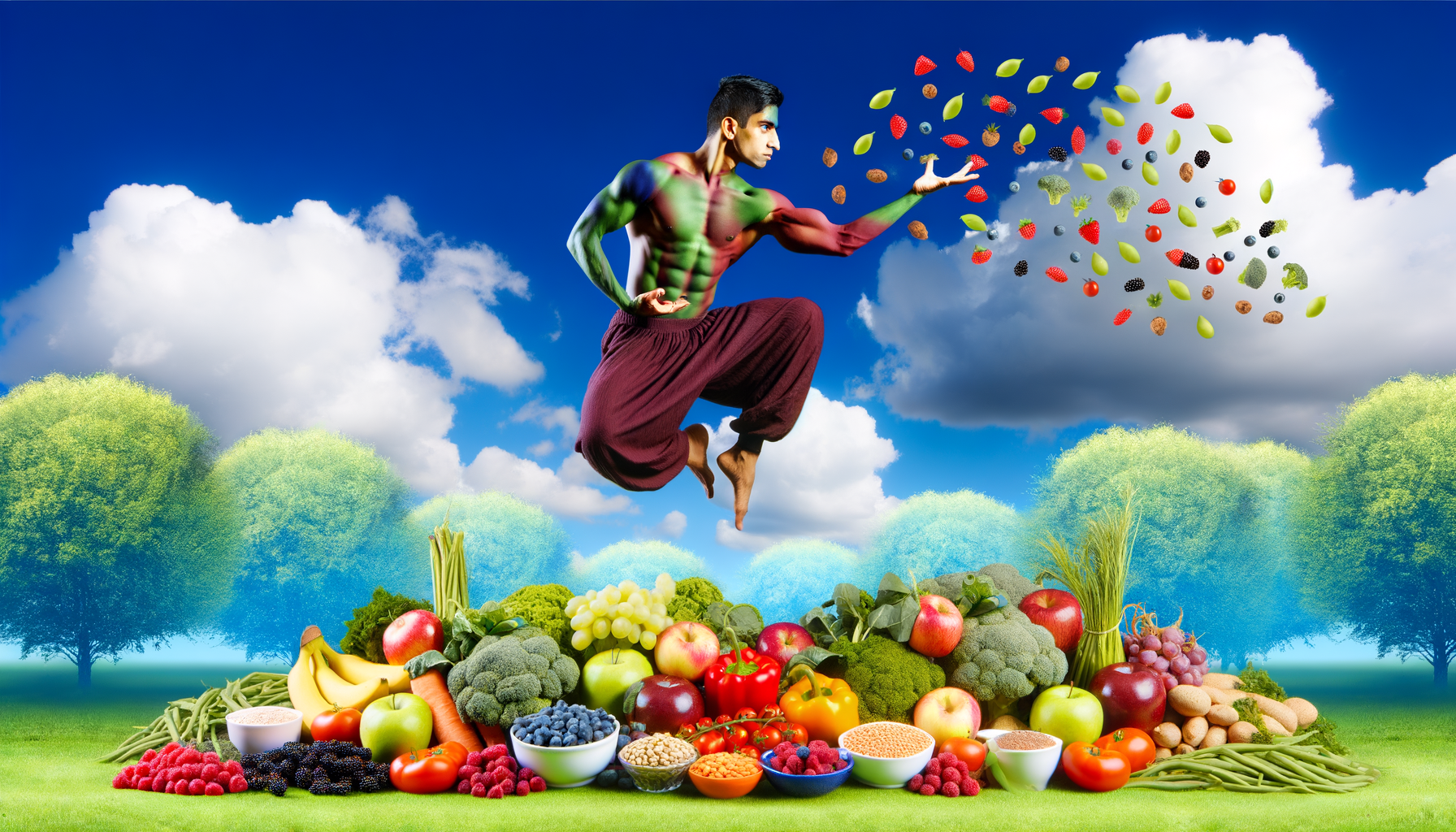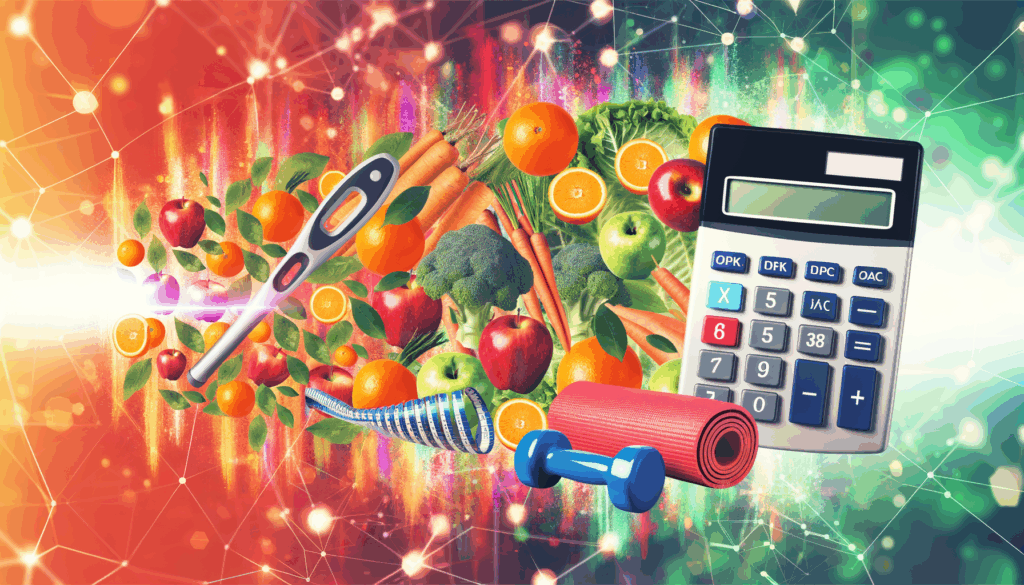Optimizing Athletic Performance with Plant-Based Nutrition
In the realm of athletic performance, nutrition plays a crucial role in fueling the body for optimal results. For vegan athletes, a well-planned plant-based diet can be a powerful tool for enhancing performance, recovery, and overall health. Here’s a detailed look at how calorie awareness and plant-based nutrition can benefit athletes.
The Benefits of a Plant-Based Diet for Athletes
A plant-based diet is rich in carbohydrates, low in fat, and abundant in vitamins, minerals, and antioxidants. This nutritional profile makes it an ideal choice for athletes. According to the Physicians Committee, plant-based athletes benefit from improvements in heart health, performance, and recovery.
Leaner Body Mass
Plant-based diets are associated with a lower body mass compared to vegetarian or omnivorous diets. This is largely due to the replacement of energy-dense animal-based foods with lower-calorie-dense plant-based foods, which have higher water content, lower fat content, and higher fiber content. This results in an increase in the thermic effect of food, meaning more calories are expended digesting plant-based foods than animal-based foods. A leaner body mass is particularly beneficial for endurance sports, as it is associated with increased aerobic capacity and improved endurance.
Carbohydrate Intake
Carbohydrates are the primary fuel used during high-intensity exercise and are essential for replenishing glycogen stores in the muscles and liver after exercising. The American College of Sports Medicine recommends that athletes consume 5–10 grams of carbohydrates per kilogram body weight per day, depending on the exercise intensity and duration. Complex carbohydrates from whole foods such as whole grains, fruits, and vegetables are optimal for health and provide a constant supply of energy throughout the day.
Protein Optimization
Protein is crucial for building and repairing muscle tissue. Contrary to common misconceptions, plant proteins can be just as effective as animal proteins in building muscle. Clinical trials have shown that when matched for protein and training, plant proteins are as effective as animal proteins in increasing lean muscle mass and improving strength. Foods like tofu, tempeh, lentils, chickpeas, and black beans are high in protein and can help athletes meet their protein requirements.
Calorie Awareness and Plant-Based Diets
Determining Caloric Needs
For vegan athletes, determining the right caloric intake is crucial. Generally, athletes need more calories than sedentary individuals to support their training and recovery. A plant-based sports nutritionist might recommend consuming 500 calories per day above daily needs for muscle gain and bodybuilding. This surplus helps in gaining a healthier body weight while maintaining muscle mass.
Macronutrient Ratios
Achieving the right macronutrient ratios is essential for athletic performance. A balanced plant-based diet typically consists of:
- 65% Carbohydrates: Focus on complex carbohydrates from whole foods like whole grains, fruits, and vegetables.
- 13% Protein: Include high-protein foods such as tofu, tempeh, beans, and legumes.
- 22% Fat: Emphasize healthy fats from sources like nuts, seeds, and avocados.
Sample Foods and Meal Planning
A well-planned plant-based diet for athletes includes a variety of foods:
- Vegetables: All kinds, cooked and raw.
- Fruits: Usually raw.
- Legumes: Lentils, chickpeas, black beans.
- Starchy Vegetables: Potatoes, sweet potatoes.
- Grains: Brown rice, whole-wheat bread, quinoa.
- Nuts and Seeds: Almonds, cashews, walnuts, chia seeds, flaxseed.
- Protein Powder: Plant-based protein powders can be useful for post-workout recovery.
Real-World Examples and Case Studies
Several high-profile athletes have successfully adopted plant-based diets to enhance their performance. For instance, Dotsie Bausch, a 2012 Olympic silver medalist, credits her plant-based diet for improved recovery and performance. Similarly, athletes like Rich Roll, Natalie Matthews, and Patrik Baboumian have excelled in their respective sports on a plant-based diet.
Performance Advantages of Plant-Based Diets
Enhanced Energy and Recovery
Plant-based diets provide optimal fuel for high-intensity exercise by focusing on carbohydrates, which are the primary energy source for muscles. Unlike diets high in fat, which can impair high-intensity performance, plant-based diets support efficient energy production and reduce fatigue. Additionally, plant-based foods rich in nitrates, such as spinach and beets, help improve blood flow, which is crucial for delivering oxygen and nutrients to muscles.
Reduced Inflammation
Eating a plant-based diet can reduce both acute and chronic inflammation, which is beneficial for athletes. This reduction in inflammation leads to quicker recovery times, reduced muscle soreness, faster healing from injuries, and improved immunity. These benefits contribute to increased career longevity and overall better health.
Conclusion and Next Steps
Incorporating a plant-based diet into an athletic regimen can have profound benefits for performance, recovery, and overall health. By focusing on the right macronutrient ratios, consuming sufficient calories, and including a variety of whole plant foods, vegan athletes can optimize their nutrition.
For those looking to transition to a plant-based diet, it’s important to start by understanding your specific caloric and nutritional needs. Tools like the Calorie Calculator Cloud can help you determine your daily caloric requirements and plan your meals accordingly.
Additionally, consulting with a sports nutritionist or using resources like The Game Changers and No Meat Athlete can provide valuable insights and practical tips for implementing a successful plant-based athletic diet.
By combining the right nutrition with a well-structured training plan, athletes can achieve peak performance and maintain long-term health and wellness. Consider exploring the Calorie Calculator Plans to find the best fit for your nutritional needs and athletic goals.








